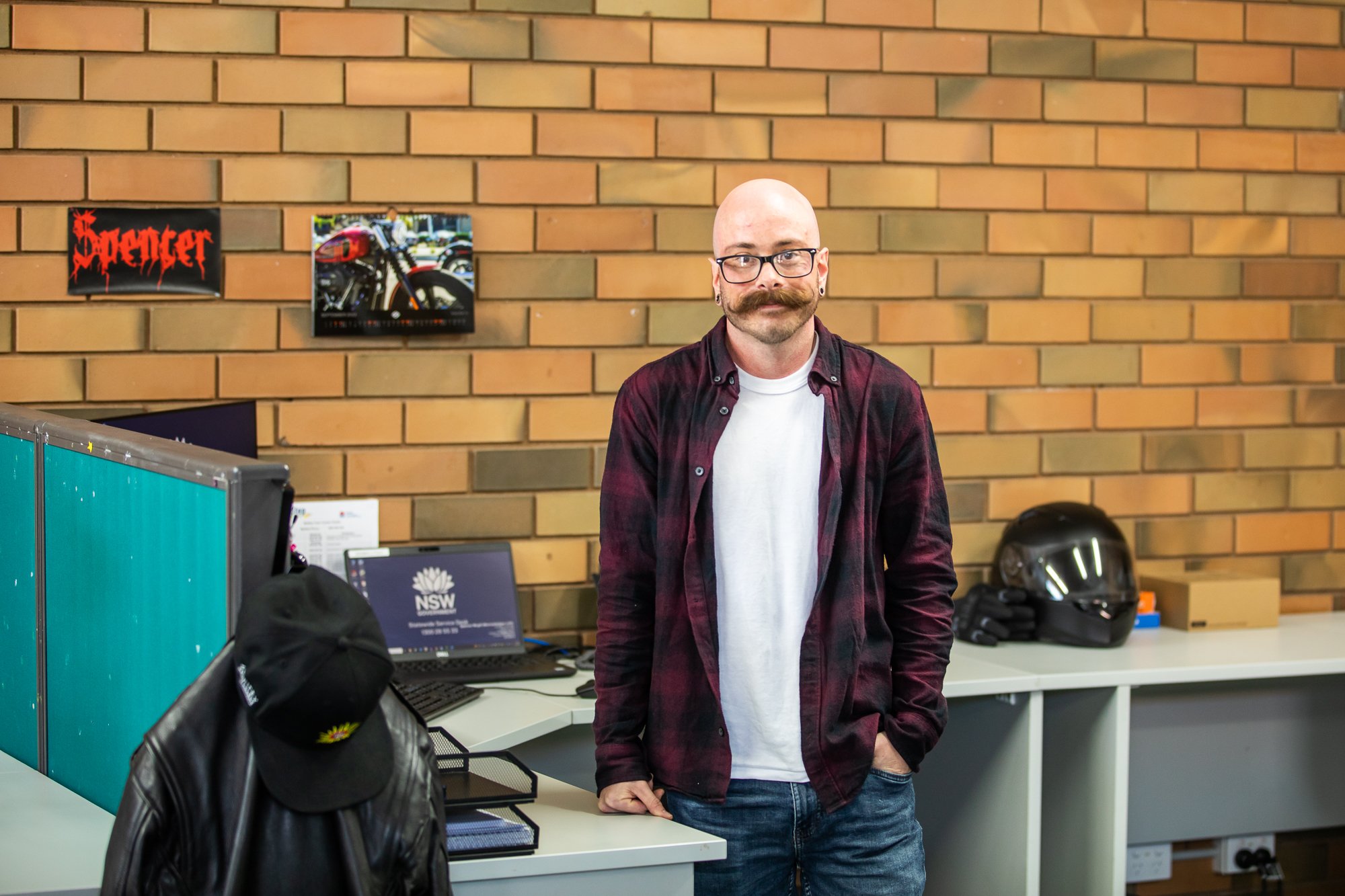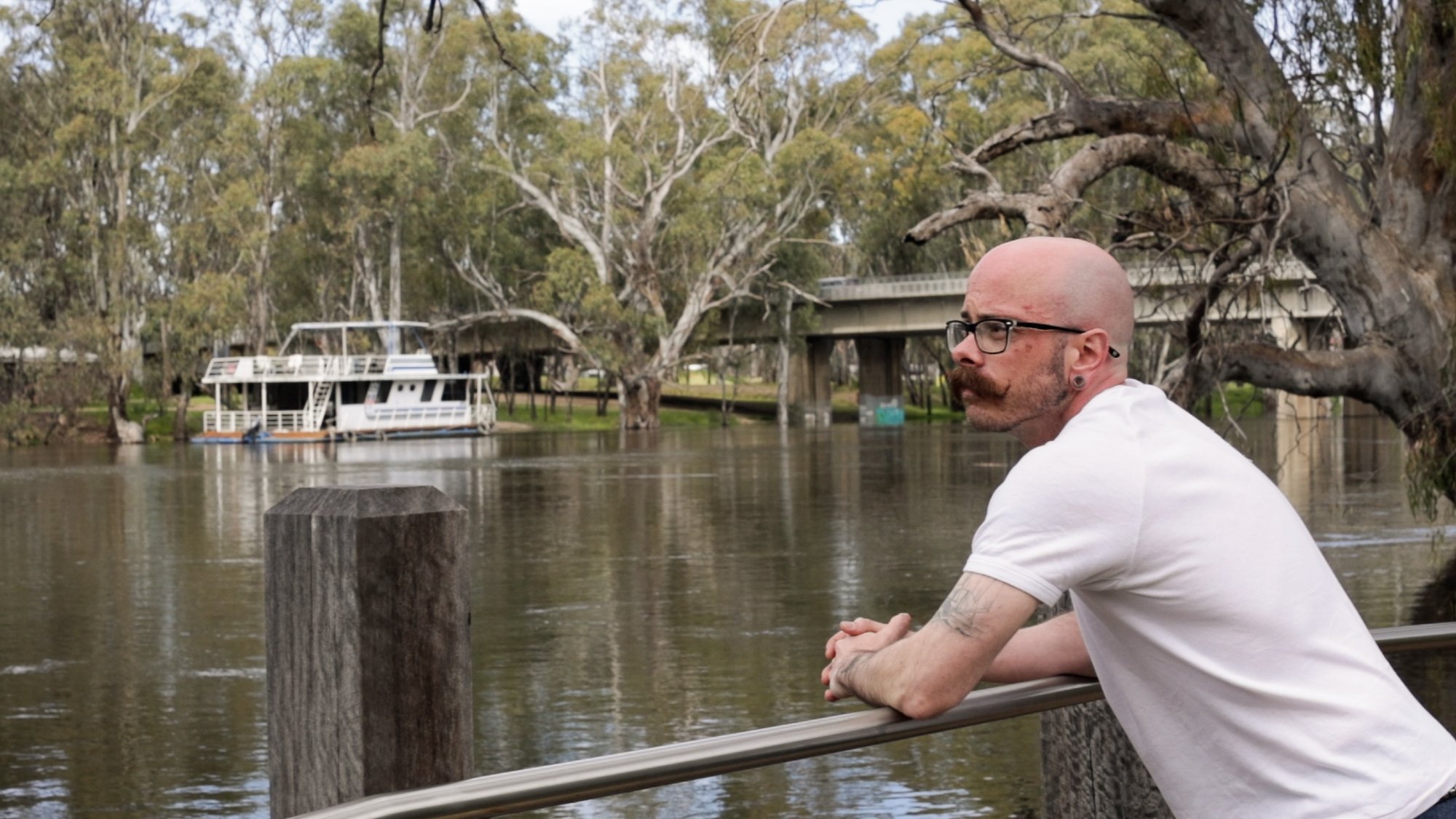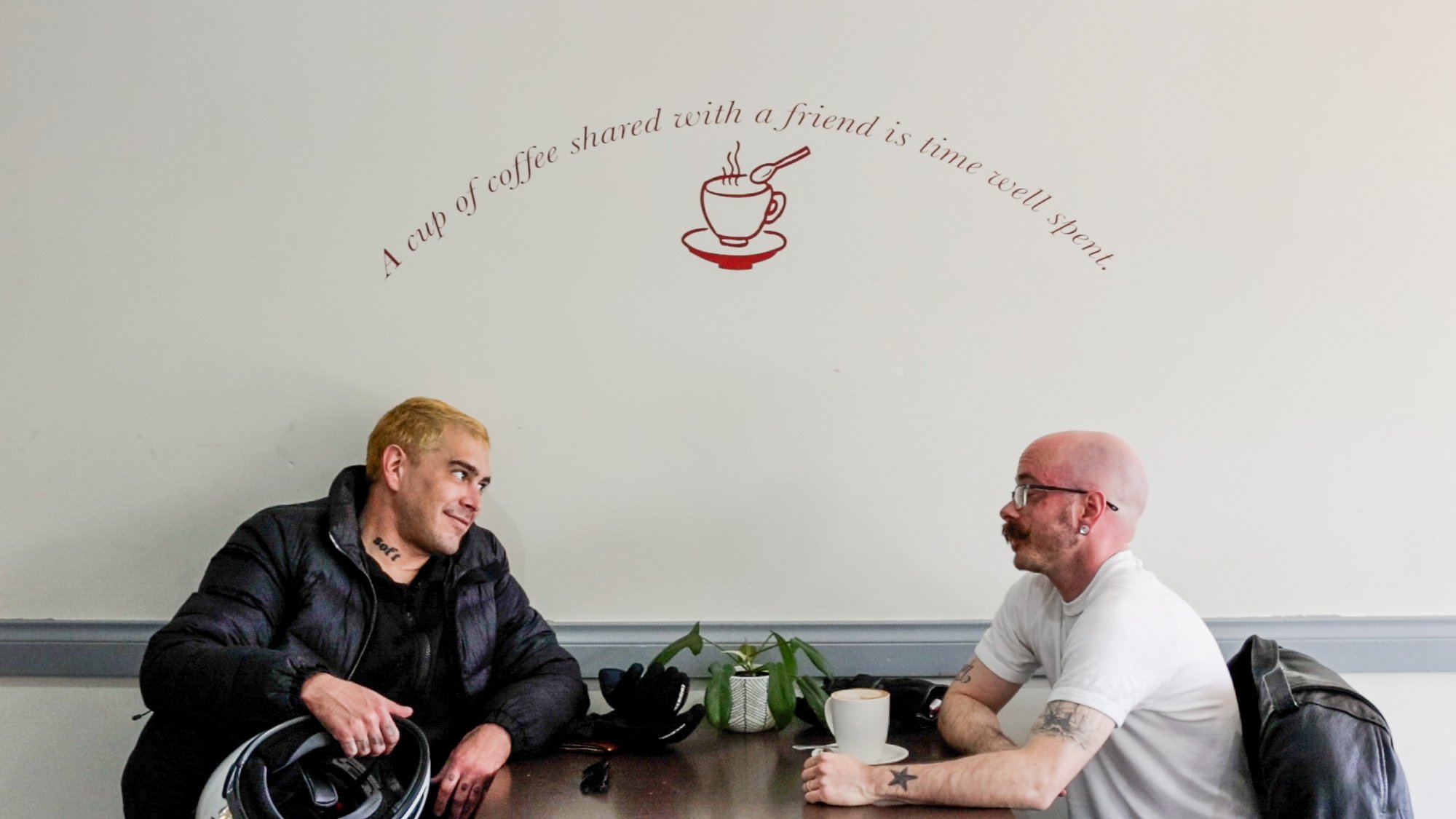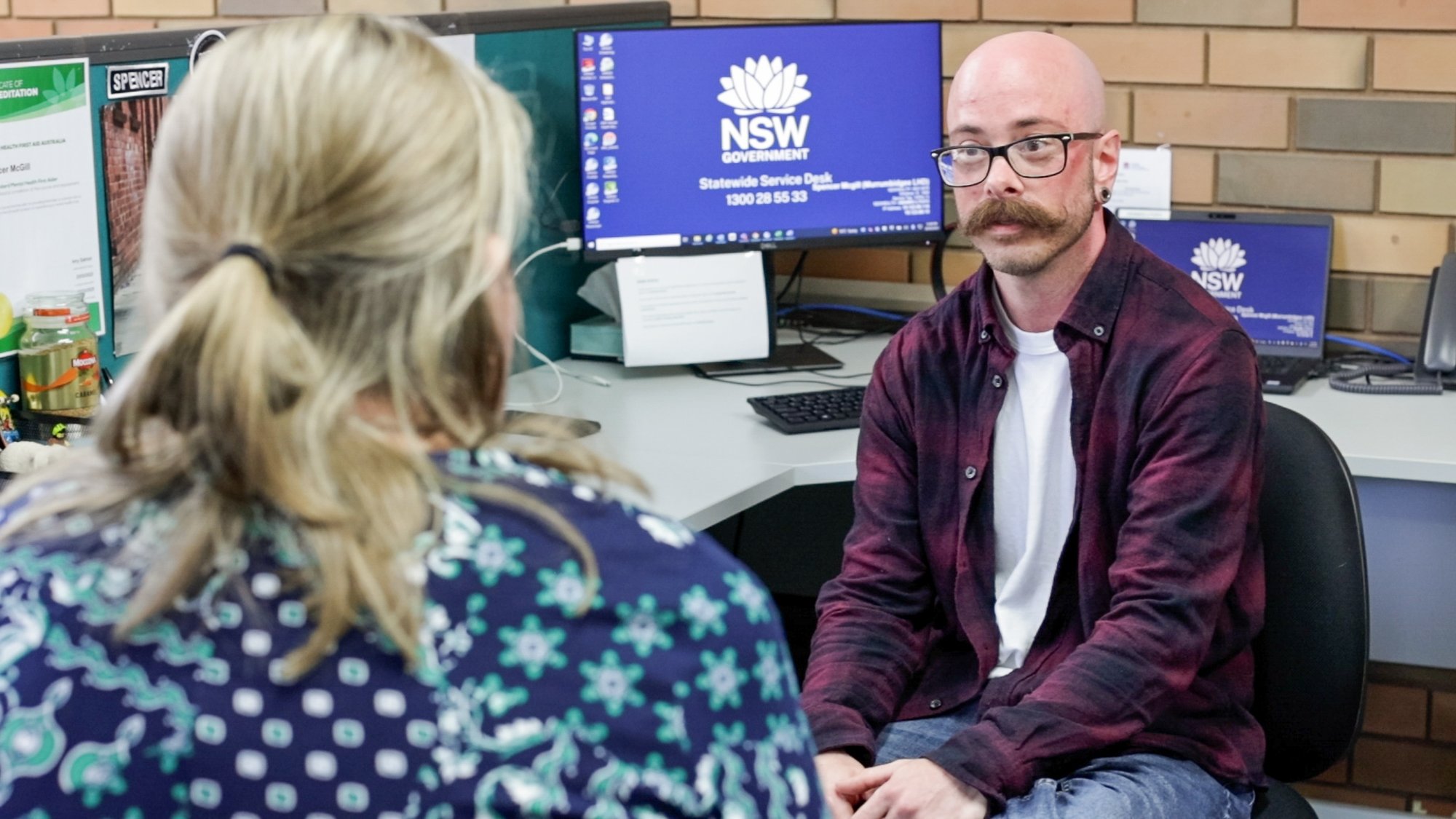Coming full circle: Living and working with mental illness
In July 2022, Spencer McGill won the Enriching Consumer Experience Award at the Murrumbidgee Local Health District Awards for his work as a Peer Support Worker with MyStep to Mental Wellbeing (MyStep) in Deniliquin. It’s an honour that took him by surprise, but it turns out being a Peer Support Worker is a role he’s been preparing for all his life.
At MyStep, Spencer works in conjunction with therapists to provide support to people living with mental illness.
“My role is dynamic and can look very different each day depending on the person and their needs. That could be working on someone's exercise goal, going out in the community with them to practice being in social situations or meeting with somebody at school to chat with them there where they’re most comfortable.
“Being a peer support worker means that I have lived experience of mental illness as a qualification for my job. Clinicians are good at doing therapy, and I'm good at knowing how it feels to access a service.
“I never knew mental health peer support workers existed until I accessed services myself. I met two amazing peer support workers and thought, ‘Wow, one day I hope I’m well enough to do something like that’. They gave me an amazing sense of hope and recovery, just seeing somebody else navigate the world, working in the field, living with mental illness.”
Now, Spencer says it feels like coming full circle.
“I never thought I could hold down a job let alone work in something I am so passionate about. Five years after meeting these peer support workers, here I am doing that same thing to help others like me – it’s pretty cool.”
A lifelong journey
Spencer can't remember a time when he didn’t live with anxiety. Growing up in Melbourne, he knew early he wasn’t like other kids.
“Everyone else had an easy time socialising. I wouldn't feel so comfortable. I became withdrawn. I found it quite difficult to be out in the world, navigating things other people would find simple, like shopping or doing after school activities or making friends.
“Anxiety has been pervasive, especially through my teenage years and that morphed into depression because dealing with it is hard.”
While he got on with life– finishing high school, moving interstate, studying at university, working in the creative industries, getting married and becoming a dad – living with mental illness took its toll. And it took him a long time to seek help.
“I started to acknowledge I needed help when I was in my early teens, but it wasn't until my mid-twenties that I really did something about it. I was just trying to suck it up and pull myself up by my bootstraps. I think being a man in Australia, we have a lot of pressures on us that perhaps aren't useful in navigating mental illness. There’s a lot of preconceived notions about what a man should or shouldn't do, and that didn't serve me well.”
It wasn’t until his wife, Jude, pushed him that Spencer knew things had to change.
“We’d been trying everything, and I was still isolating myself. There’s been a lot of times where I wasn't the husband or the father that I needed to be due to my mental illness. And despite that, my wife has been by my side – she’s my biggest support. So, when she said, ‘I need you to do something not just for you, but for us as a family’, I realised it wasn’t just me suffering. It was time to do something.”
With Jude’s help, Spencer reached out to the Wagga Wagga Mental Health Recovery Unit where he signed up to for an eight-week in-patient program. It wasn’t an easy step, but it is one that changed everything.
“It took a lot to decide to invest in that time at the Mental Health Recovery Unit. Even knowing this was going to be something that not only helped me but everyone around me, it was a hard thing to come to grips with. But it's been the best decision I ever made, and it was a massive tipping point within my mental health journey.”
The work continues
While his time in the recovery unit was life changing, Spencer is quick to point out that seeking help and managing his mental health is not just a one-time effort.
“This is a work in progress. I'm constantly investing in my myself. I'm constantly doing the work, and it is work. When I reflect on myself five years ago, I'm a totally different person now. I'm able to articulate my feelings and to speak openly and honestly about what I need. That's a massive change but it's not a one and done thing.
“When it came to my mental illness, the hardest part was taking that first step to reach out for help. It was a roadblock that felt too hard to push past. Now, the biggest piece of advice I can give to anyone in a similar situation is that although it feels tough to initiate that first step, you deserve help. You deserve to give yourself that.
“Reaching out is hard, but it's so worth it. I'm really glad I was able to reach out to get support because it was from there that my life flourished.”
Spencer has found owning and sharing his story to be an important part of the process.
“I'm a staunch advocate for destigmatisation. I think if we have open and honest conversations about how mental illness affects us every day, we can only ever serve ourselves better. Talking about how mental illness affects me has helped me move beyond it and it’s so rewarding to be able to share your own experiences.
“My journey is an important part of the work I do with others and I'm really proud to be able to help other people navigate their own mental health journey.”
The Australian Government resource Head to Health has digital mental health and wellbeing resources, for yourself or for someone you care about – visit headtohealth.gov.au.
Anyone who is experiencing a mental health emergency (themselves or others) should call Mental Health Line 1800 011 511, Lifeline 13 11 14 or call 000.





